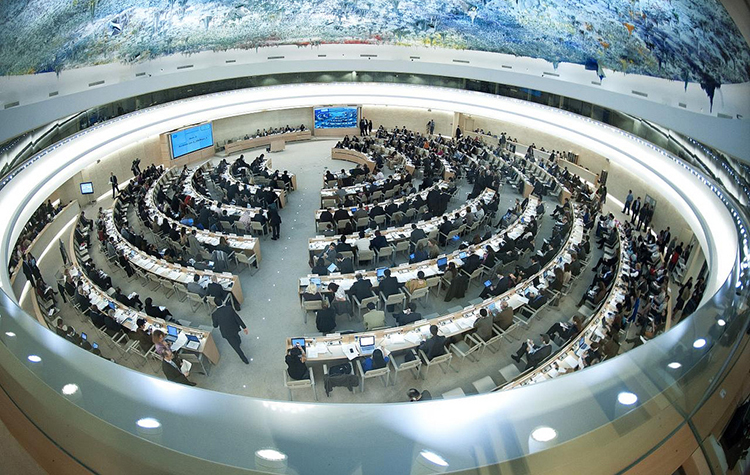32nd Regular Session of the UN Human Rights Council
Item 3: Interactive Dialogue with the Special Rapporteur on the rights to freedom of peaceful assembly and of association, and the Special Rapporteur on the right to education
Oral Statement Delivered by Astrid Maharani
On behalf of the Asian Forum for Human Rights and Development (FORUM-ASIA)
Friday, 17 June 2016
Mr. President. We welcome the report of the UN Special Rapporteur on the Right to Freedom of Peaceful Assembly and of Association. We echo his concerns on the damaging impact of fundamentalism on shrinking civic space.
Fundamentalism in several Asian countries has resulted in laws and policies to curb the right to freedom of assembly and association. The Trade Union Law in Cambodia, the use of military attitude adjustment in Thailand against defenders of land rights and corporate accountability, and the arrests of people affected by extractive industries and land grabbing in Burma/Myanmar are just a few examples .
We agree with the Special Rapporteur’s observation on the trend of one-party political system in several Asian countries. In Cambodia, Laos, Malaysia, Singapore, and Vietnam where single party rule continue for decades excessive restrictions have been imposed on the freedoms of assembly and association of those critical of the ruling party
In Bangladesh and Pakistan, the rights of minorities and human rights defenders are under serious threat from non-state actors motivated by religious fundamentalism. Recently in Indonesia, LGBTI groups were intimidated by the state and religious groups. In Burma/Myanmar, we remain deeply concerned that Rohingya people continue to face threats from Buddhist fundamentalists.
We acknowledge the Special Rapporteur’s report on South Korea and are concerned at the restrictions on trade unions. The government continues to determine who can join trade unions contrary to international norms. The Korean Teachers and Education Workers Union (KCTU) was deregistered on the ground that it allow dismissed workers as members. 15 full time union officers were dismissed in May. 15 Tower Crane operators were convicted with criminal charge of “intimidation” and “coercion” for simply holding a rally
Lastly, we strongly appreciate the recommendations made by the Special Rapporteur and call on him to work closely with the Special Rapporteurs on the Promotion and Protection of the Right to Freedom of Opinion and Expression and on the situation of human rights defenders to support the efforts of civil society in the region to combat the growth of extremism.
We emphasise the role of national human rights institutions (NHRIs) in addressing violations cited by the Special Rapporteur. We endorse recommendations in the report which require NHRIs to play their role as an oversight body to counter practices of fundamentalism that restrict assembly and association rights.
Thank You



